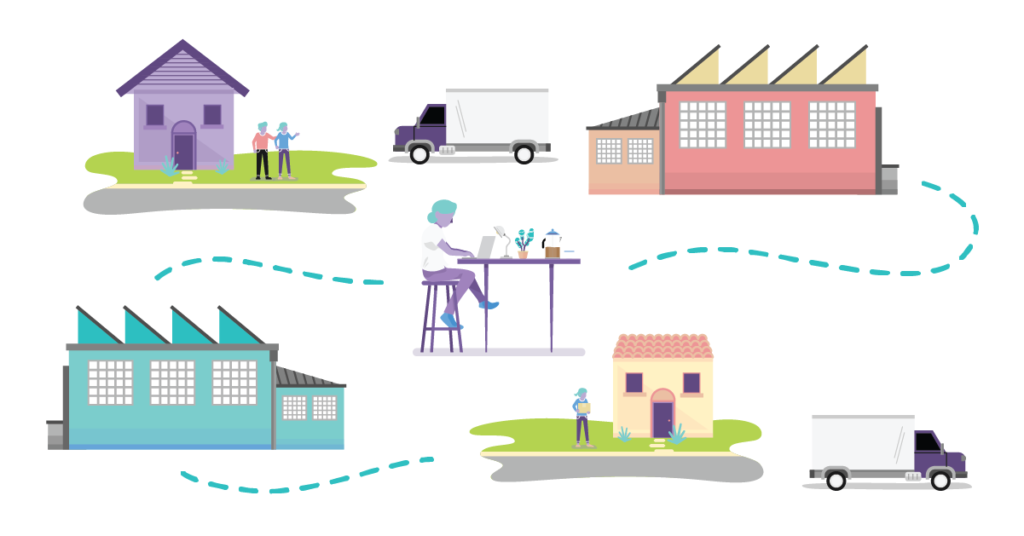
E-commerce Fulfillment In-House vs Outsourcing
In the realm of e-commerce, a critical decision often looms over business owners: should they handle fulfillment in-house or outsource it to a third party? This dilemma can significantly impact the success and efficiency of an e-commerce venture. In this article, we will embark on a journey to decipher the complexities surrounding E-commerce Fulfillment In-House vs Outsourcing.
The Power of In-House Fulfillment
E-commerce fulfillment carried out in-house offers a high degree of control. It allows businesses to oversee every aspect of the fulfillment process, from inventory management to shipping. This control ensures that customers receive their orders promptly and accurately.
However, in-house fulfillment comes with its own set of challenges. It requires substantial investments in warehousing space, equipment, and a dedicated workforce. These investments can strain a company's resources, especially for startups and small businesses.
The Outsourcing Advantage
Outsourcing fulfillment to a third-party provider can be a game-changer for many e-commerce businesses. It allows companies to focus on core activities while experts handle the nitty-gritty of order processing and shipping.
Outsourcing also provides scalability, enabling businesses to expand quickly without the burden of additional overhead costs. Many fulfillment companies offer state-of-the-art technology that streamlines the process and enhances efficiency.
The Cost Conundrum
When evaluating E-commerce Fulfillment In-House vs Outsourcing, cost is a crucial factor. In-house fulfillment may initially seem cost-effective, but when considering long-term investments in infrastructure and labor, the picture changes. Outsourcing, on the other hand, offers cost predictability, as businesses pay for services they use, making it a more financially flexible option.
The Customer Experience
The ultimate goal of e-commerce is to provide an exceptional customer experience. In-house fulfillment allows for a hands-on approach to order accuracy and customer communication. However, outsourcing can also provide a high level of service, with professional fulfillment centers ensuring orders are accurate and delivered promptly.
The Technology Edge
Modern e-commerce relies heavily on technology. Outsourcing companies often invest in cutting-edge systems that optimize the fulfillment process. In-house fulfillment may struggle to keep up with these technological advancements, potentially leading to inefficiencies.
The Security Factor
Data security and inventory protection are paramount. In-house fulfillment gives businesses direct control over data and inventory security. Outsourcing providers should offer robust security measures, but it's essential to choose a trusted partner in this regard.
The Environmental Impact
Sustainability is a growing concern in today's world. In-house fulfillment allows businesses to implement their eco-friendly practices. Outsourcing providers may have varying levels of commitment to sustainability.
The Scalability Quandary
As businesses grow, their fulfillment needs change. In-house fulfillment may struggle to keep up with increased demands, leading to delays and customer dissatisfaction. Outsourcing companies are often better equipped to scale operations rapidly, ensuring a seamless experience for customers.
The Decision Dilemma
Choosing between E-commerce Fulfillment In-House vs Outsourcing requires a careful evaluation of your business's unique needs and priorities. There is no one-size-fits-all solution. Consider factors like control, cost, scalability, and technology when making your decision.
In conclusion, both in-house and outsourcing fulfillment have their merits and drawbacks. The key is to align your fulfillment strategy with your business goals and resources. By doing so, you can ensure that your e-commerce venture thrives in a competitive market.
Frequently Asked Questions
-
Is outsourcing fulfillment suitable for small e-commerce businesses?
Outsourcing fulfillment can benefit businesses of all sizes. Small businesses can enjoy the scalability and expertise that third-party providers offer.
-
What should I consider when choosing an outsourcing partner?
When selecting an outsourcing partner, focus on their track record, technology capabilities, security measures, and commitment to sustainability.
-
Are there any hidden costs associated with in-house fulfillment?
In-house fulfillment often incurs hidden costs, such as maintenance and labor training. Be sure to consider these factors in your decision-making process.
-
Can in-house fulfillment match the speed and efficiency of outsourcing?
In-house fulfillment can be efficient but may struggle to match the speed and scalability of outsourcing, especially during peak seasons.
-
How can I ensure data security with an outsourcing partner?
To ensure data security, choose an outsourcing partner with a strong track record in data protection and cybersecurity measures.
-
What is the environmental impact of outsourcing fulfillment?
The environmental impact of outsourcing varies from provider to provider. Look for partners committed to sustainable practices if this is a priority for your business.
Summary: When deciding between E-commerce Fulfillment In-House vs Outsourcing, it's essential to consider factors like control, cost, scalability, and technology. Each approach has its advantages and drawbacks, and the choice should align with your business goals.
